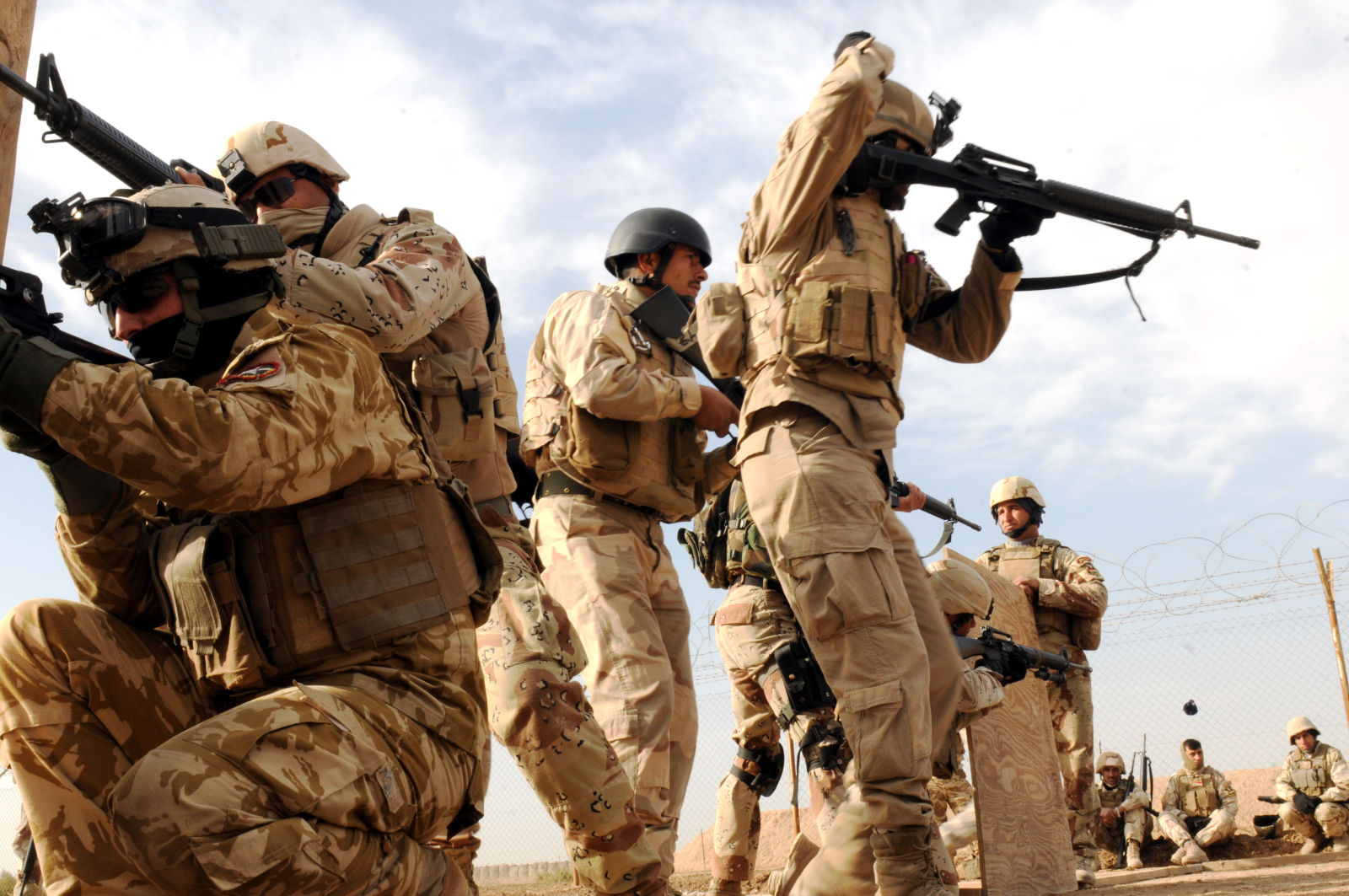While Iraq’s military claimed Wednesday to have driven back militants battling for control of the country, the chairman of the Joint Chiefs of Staff told Congress that the United States has received a request from the Iraqi government to use its air power in the conflict.
Gen. Martin Dempsey, the senior ranking member of the U.S. armed forces, spoke before the Senate Appropriations Committee Wednesday on Capitol Hill in Washington, saying that the United States’ “national security interest (is) to counter (ISIS) where we find them.”
ISIS is the Islamic State in Iraq and Syria.
Comprising mostly Sunni Muslims, ISIS is an al Qaeda splinter group that wants to establish a caliphate, or Islamic state, that would stretch from Iraq into northern Syria. The group has had substantial success in Syria battling Syrian President Bashar al-Assad’s security forces. Since launching their offensive in Iraq, ISIS claims to have killed at least 1,700 Shiites.
Hundreds of thousands of Iraqis have fled, prompting fears of a brewing humanitarian crisis.
Qassim Atta, a spokesman for Iraqi security forces, on Wednesday night ordered an investigation into 59 high-ranking security officials accused of leaving their posts. The officials could be executed if found guilty, Atta said.
Earlier in the day, concerns over an oil refinery in the Iraqi town of Baiji continued, a key consideration because so much of Iraq’s economy depends on its oil production. The country produces 3.3 million barrels per day and has the world’s fourth-largest proven crude oil reserves, according to OPEC.
Atta said in a televised news conference that Iraqi forces had killed 40 ISIS militants in Baiji, 225 kilometers (140 miles) north of Baghdad, the capital.
“The situation in Tal Afar, Samarra, and Baiji is under control,” Atta said.
Atta claimed that Iraq’s military were “defeating ISIS in the Baiji area” and that “most of the areas” around the northwestern city of Tal Afar were liberated.
That apparently included 50 Siemens employees, including eight Germans, who were holed up in a power station in Baiji but have been freed, according to German officials. The employees are safe and well, CNN was told.
According to German diplomats, around 8,000 German nationals are currently in Iraq.
Tal Afar fell to ISIS on Sunday, according to Iraq’s military. Many Tal Afar residents, including ethnic minority Shiite Turkmen, fled the fighting north toward Iraq’s Kurdish region.
The casualty numbers and the situation on the ground have not been independently confirmed by CNN.
In the meantime, Iraqi Prime Minister Nuri al-Maliki struck a defiant note in his weekly address, insisting that Iraqi authorities “will win” despite the setbacks of the past week, during which Iraqi security forces crumbled in Mosul and elsewhere before the militants’ advance.
“We absorbed the initial shock of the military operations and now we are on the rebound we will respond and keep the momentum,” he said. “What happened was a catastrophe, but not every catastrophe is a defeat.”
Al-Maliki blamed political paralysis, not military weakness, for the crisis. He urged Iraqis to unite against terrorism, insisting that the political process would begin to move now that elections are over.
Critics blame al-Maliki and his Shia-dominated government for the worsening sectarian division in Iraq.
Earlier, the Prime Minister’s office released a statement accusing Saudi Arabia of appeasing terrorists and providing radical groups with material and moral support.
“The Saudi government must bear responsibility of the serious crimes committed by these groups,” the statement read.
On Wednesday in a strongly worded statement, the Saudi Arabian government denied that the kingdom provides “either moral or financial support to ISIS or any terrorist networks. Any suggestion to the contrary is a falsehood.”
The Saudis blamed the Iraqi Cabinet for “exclusionary policies (that) have fomented this current crisis.”







